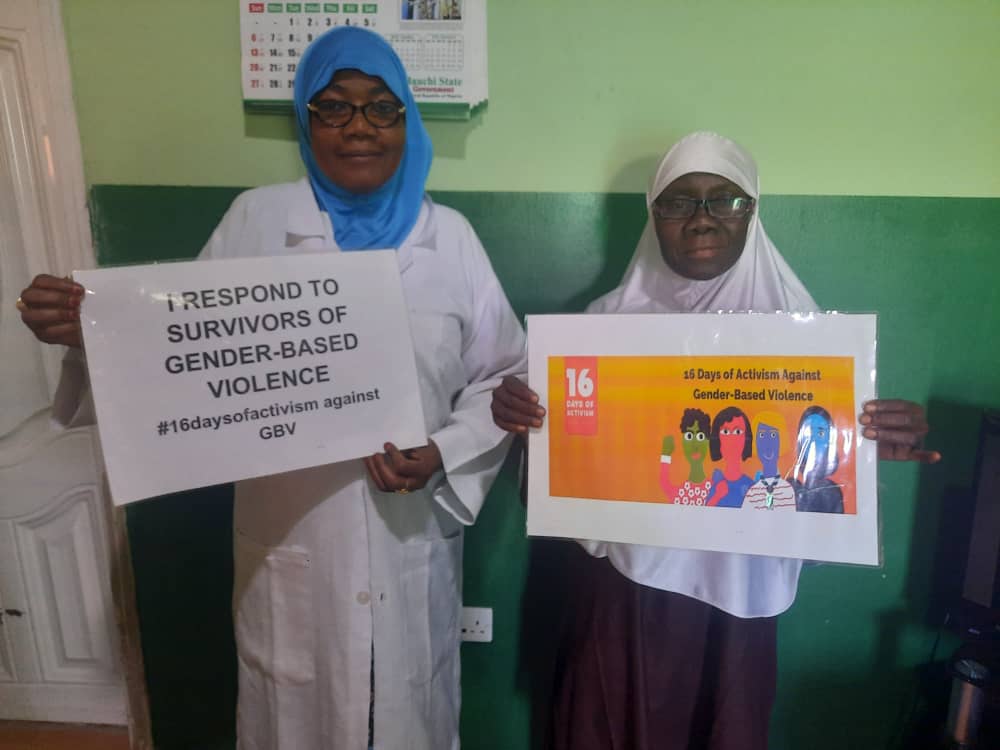Gender-based violence (GBV) is a serious public health issue that is often perpetuated by harmful cultural practices and social norms, as well as conflict and instability. WI-HER partners with governments, health facilities and providers, and communities to identify the root causes of GBV and co-design solutions for effective interventions that prevent and respond to GBV. By strengthening local leadership, local systems, and local capacity, we help partners and communities improve the identification, care, and treatment of survivors.
How We Work
- Identifies community attitudes that perpetuate violence and works directly with healthcare providers and community leaders to optimize their capacity to provide, for example, trauma-informed and survivor-centered care.
- Conducts on-site and virtual mentoring and training visits, including assistance in cascading training to local organizations and communities.
- Supports partners in applying our human-centered iDARE™ methodology to identify barriers to health service delivery and co-design and implement locally-led solutions. This often involves designing and providing tools and resources, including referral pathways, to respond to GBV.
- Implements grants under contract mechanisms to support local organizations to develop comprehensive packages related to GBV care, treatment, and prevention and train healthcare workers.
- Engages the community through advocacy and sensitization and supports local partners, civil society organizations, and community-based organizations in their efforts to address and prevent GBV.
- Strengthens the capacity of government focal points to engage with communities, including youth, to inform strengthened services and advocate for sensitive and responsive care.
Examples of our GBV Response Work
In Nigeria, through USAID Integrated Health Program (IHP), WI-HER strengthened the capacity of healthcare workers to provide a comprehensive package of GBV prevention, care, and treatment activities. For example, WI-HER worked with the Federal Ministry of Health and stakeholders to adapt the WHO curriculum to develop a national GBV training curriculum for healthcare providers based on international standards and best practices. We then supported a roll-out of the training via the training of master trainers and working with local organizations to cascade training throughout four states and the Federal Capital Territory. As a result of this effort, a cadre of 2,879 health professionals were trained to provide survivor-centered care and referrals in 1,031 facilities. Read more.
In Fiji and the South Pacific, climate change has caused people to lose their land and livelihood, which has, in turn, heightened the prevalence of GBV. WI-HER supported partners and civil society organizations in improving a Feedback Grievances and Redress Mechanism (FGRM), a promising conflict and dispute resolution framework, to better understand and address conflict and inequities through a GESI lens. The adapted FGRM+ responds to Gender Based Risks (GBR) and embeds linkages to existing resources in Fiji for GBV services. Read more.

Projects
- USAID Integrated Health Program (IHP)
- USAID Adolescents and Children HIV Incidence Reduction, Empowerment, and Virus Elimination (ACHIEVE)
- USAID Applying Science to Strengthen and Improve Systems (ASSIST)
- USAID HIV Service Delivery Support Activity
- USAID Gender-based Violence (GBV) and REDD+ in Fiji: Tackling Resource Conflict and Addressing Gender-based Risk in the Environment
- Custom Sexual Harassment and Misconduct trainings for federal agencies and the private sector